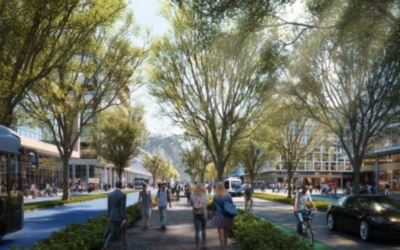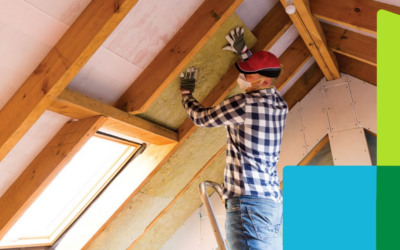Popsicles and 15-Minute Communities Funding
The Popsicle Test While there are many ways to measure the safety and walkability of a neighbourhood the “popsicle test” beats the heat every time. If you haven’t heard of it, the “popsicle test” is a personal assessment of whether an 8-year-old child can walk a few...
Telling Better Stories Through Evaluation Part 2
In a previous blog post, we explored the crucial role evaluation plays in telling a compelling program or project story. Here's a simple step-by-step process for setting up an evaluation that works for your organization – and helps you tell the story of why you do...
Short staffed? Filling the vacancies and succession planning go hand in hand
Having recently led a strategic planning process for a non-profit dealing with critical staffing challenges, and with our organization (WCS) looking to expand our team – not to mention the ongoing news and anecdotal accounts of staffing shortages through most sectors...
The evolving role of public libraries
WCS Engagement + Planning has been assisting various public libraries with strategic planning. At the core of the strategic planning process is developing a shared vision and mission for the library, including the unique role it plays in the community it serves. ...
You’re Not Alone: Joining a Community of Practice
What's a Community of Practice? Have you ever felt that you’re the only person in the world facing particular challenges? That no one else is dealing with the same issues you’re dealing with every day? That you’d better come up with a solution since no one else has...
The Two Loops Model for Thinking About and Supporting Systems Change
We recently helped to facilitate the Climate Caucus Summit 2023 held in Richmond, BC. One of the presenters, Andrea Reimer, former Vancouver City Councilor and founder of Tawâw Strategies, introduced us to the ‘Two Loops’ theory of change. The model, depicted below...
Telling Better Stories Through Evaluation
Once upon a time there was a small, but mighty organization whose skilled and dedicated staff worked tirelessly. They provided exceptional programs, services, and/or community benefit. The end. As unsatisfying as this story is, this is the sort of tale told when...
Chat GPT Perspective on the 15-Minute City
In the wake of the recent 15-minute city conspiracy theories, which you can read about here and here, I thought I would consult an expert on the topic – ChatGPT. Here’s what AI thinks about the 15-minute city. Request to Chat GPT: “Please write a 300 word blog in a...
Climate Caucus – Summit 2023
This annual Climate Caucus Summit brings together municipal leaders from urban and rural communities across Canada to workshop practical, local, climate solutions. Following recent local elections in BC, Manitoba, Ontario, PEI, New Brunswick, the Northwest...
Gentle Density – What, Why and How?
WCS Engagement + Planning has been working with Small Housing over the past year on an initiative to accelerate the adoption of “gentle density” infill housing throughout BC communities. We co-hosted a Summit, attended by 50 local government planners, earlier this month to discuss learn about leading practices and success stories from other communities and to peer crowd-source solutions. We will continue to support Small Housing with the creation of a Community of Practice.
Reflections on COP27
Photo by Matthew TenBruggencate on Unsplash COP27, the 27th United Nations Climate Change Conference, took place last month in Sharm El Sheikh, Egypt. From November 6-18, more than 45,000 participants from nearly 200 nations gathered to share ideas and build...
Funding and support for home improvement programs in Canada
With winter quickly advancing across western Canada in the shadow of COP27, I’m reminded of how improving climate comfort at home benefits our earth’s climate. In Nelson, BC, over 1,500 residents know this firsthand after participating in the City’s home improvement...









